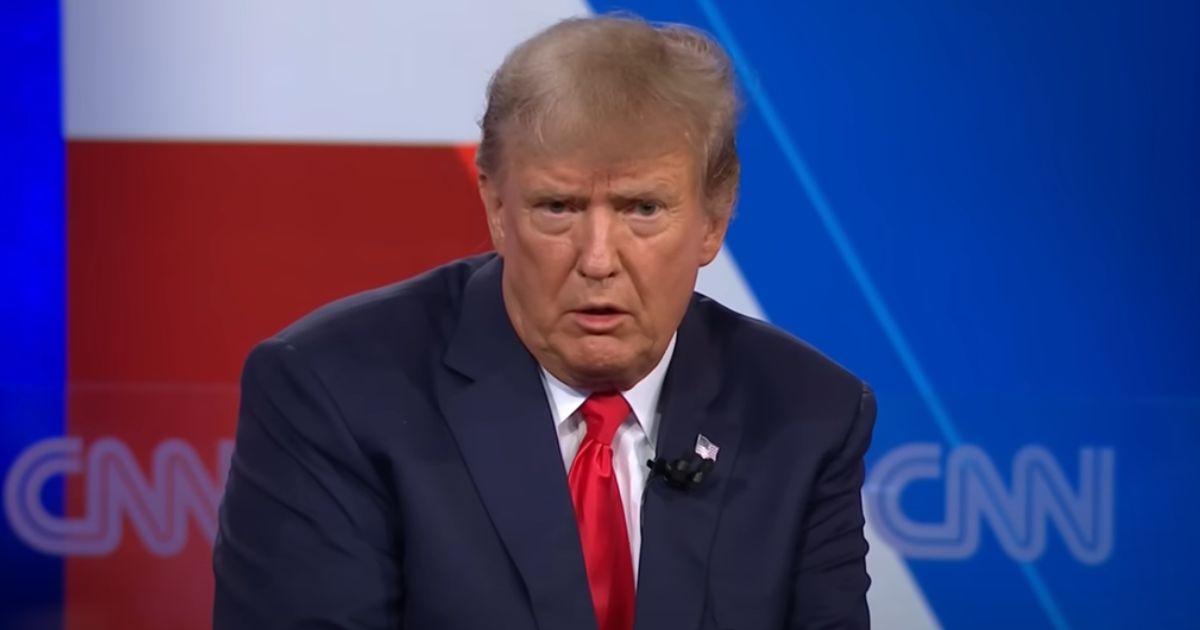DeVos Open To Rejoining Trump In White House Under Educational Reform Conditions
Daily Mail reported that Betsy DeVos, a notable figure from the Trump administration's first tenure, has expressed conditional interest in serving again if the former president returns to office.
In a recent statement, DeVos revealed her criteria for rejoining would include a commitment to dismantling the Department of Education and implementing extensive educational reforms.
DeVos's Departure and Potential Return
Former Education Secretary Betsy DeVos resigned from her position in the aftermath of the January 6, 2021, Capitol attack, distancing herself from the administration due to the violent events and the president's rhetoric.
This decision marked a significant moment as DeVos was one of only two Cabinet secretaries to step down following the incident. However, her recent comments suggest a willingness to reconsider her role under specific conditions.
Speaking at a Michigan fundraiser for Republican Senate candidate Mike Rogers on August 5, DeVos stated her openness to rejoin a potential future Trump administration. Her return hinges on a clear agenda geared toward phasing out the Department of Education and advancing a major educational freedom bill, primarily through tax credit mechanisms managed by the Department of Treasury.
The conditions set forth by DeVos align with some previously expressed interests of Trump, who, during his presidency, advocated for reducing the federal government's role in education and returning control to the states.
This rhetoric is supported by think tank strategies, notably the Heritage Foundation’s Project 2025, which outlines plans for dismantling the Department of Education in a possible second Trump administration.
Historical Context of DeVos's Resignation
Betsy DeVos's resignation was largely influenced by her disapproval of the January 6 events and the president's involvement. In a poignant resignation letter, she condemned the impact of Trump's rhetoric on the incident, though she also praised his administration's accomplishments.
Her departure followed internal discussions among certain Cabinet members about potentially invoking the 25th Amendment to remove Trump from office, highlighting the severity of the concerns raised by the Capitol attack.
Despite these turbulent final days in office, DeVos's recent remarks reflect a nuanced position: while she has not officially endorsed Trump for the 2024 election, she remains committed to supporting the Republican ticket and its goals. This stance illustrates the complex interplay between personal convictions and political alignment in the dynamic landscape of American politics.
Trump’s known propensity for rehiring former aides who left under strained circumstances may factor into DeVos's potential reappointment. This pattern of reintegration underscores a willingness to maintain continuity and leverage familiar expertise despite past disagreements.
Focused Agenda for Education Reform
The centerpiece of DeVos’s conditions for returning involves a strategic dismantling of the Department of Education. She envisions an education system more decentralized and driven by state policies rather than federal oversight. This aligns with broader conservative educational policies that advocate for increased local control and less federal intervention.
In addition to structural changes, DeVos pushes for the passage of major educational reform legislation. She emphasizes the importance of a tax credit system that would presumably support educational freedom, suggesting these funds be managed through the Department of Treasury to innovate funding strategies for education across America.
Legacy and Future Prospects
DeVos's legacy as Secretary of Education was marked by controversial policies and significant shifts in federal education strategy.
Her advocacies for school choice, voucher programs, and reduced federal oversight in education sparked debates across the political spectrum. Whether these policies will have a lasting impact or be revisited in a future administration remains a point of contention and interest.
As the political scene unfolds, DeVos’s strategic positioning indicates a calculated re-entry into the political arena, one that is contingent upon certain ideological and policy commitments being met. This approach defines her terms of engagement and sets a clear agenda should she step back into the role of Education Secretary.
Conclusion
Betsy DeVos’s conditional willingness to serve again under Trump highlights a crucial intersection between personal political integrity and policy-driven prerequisites. Her demands focus on dismantling the Department of Education and championing significant tax credit-based educational reforms.
While DeVos has not officially endorsed Trump, her alignment with the Republican platform emphasizes a broader conservative agenda toward educational policy. As the political dynamics continue to evolve, her potential role could significantly influence the direction of educational policy in the future Trump administration.





